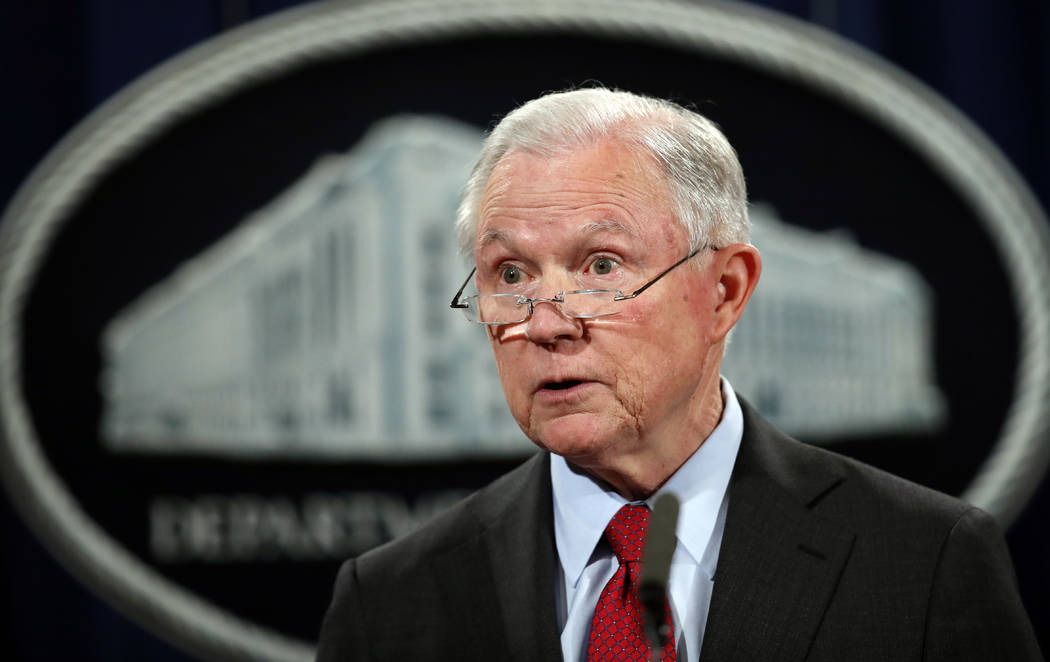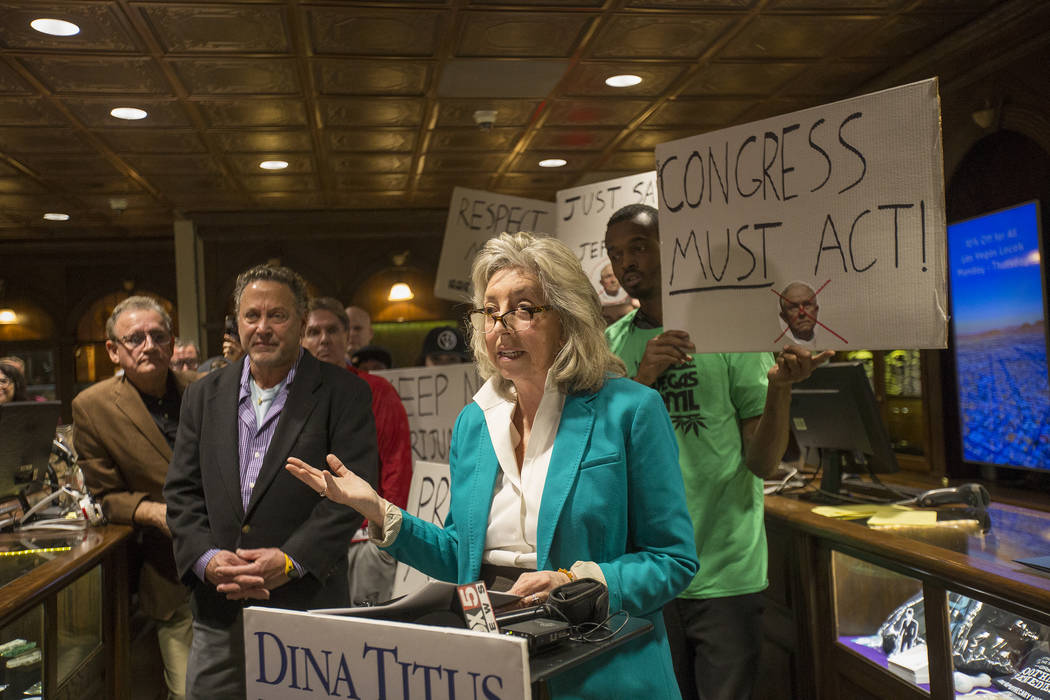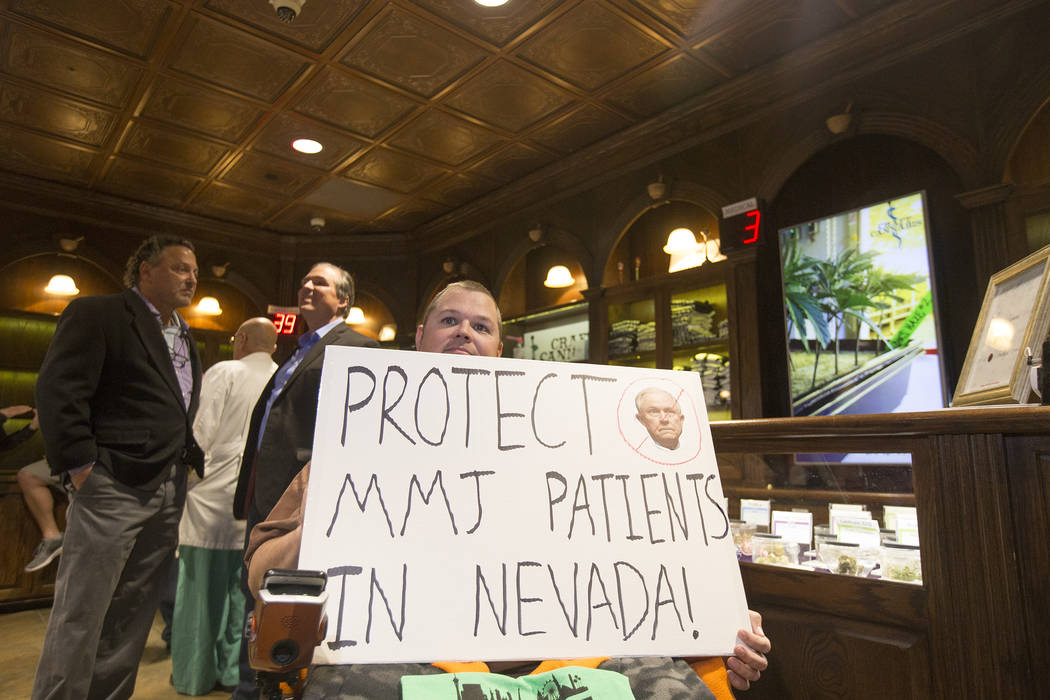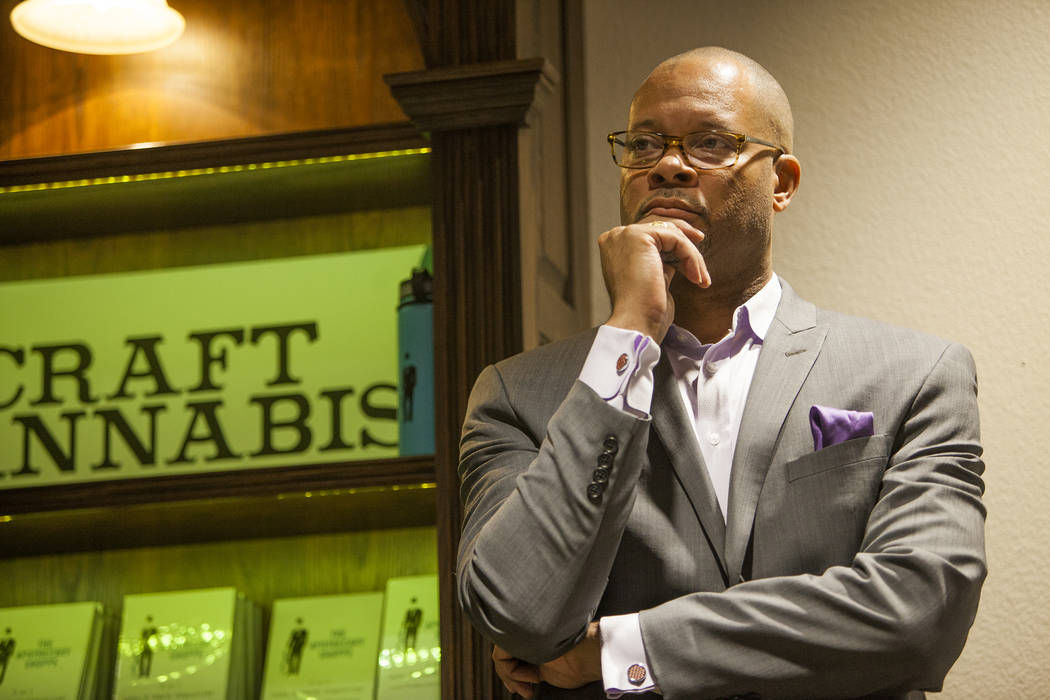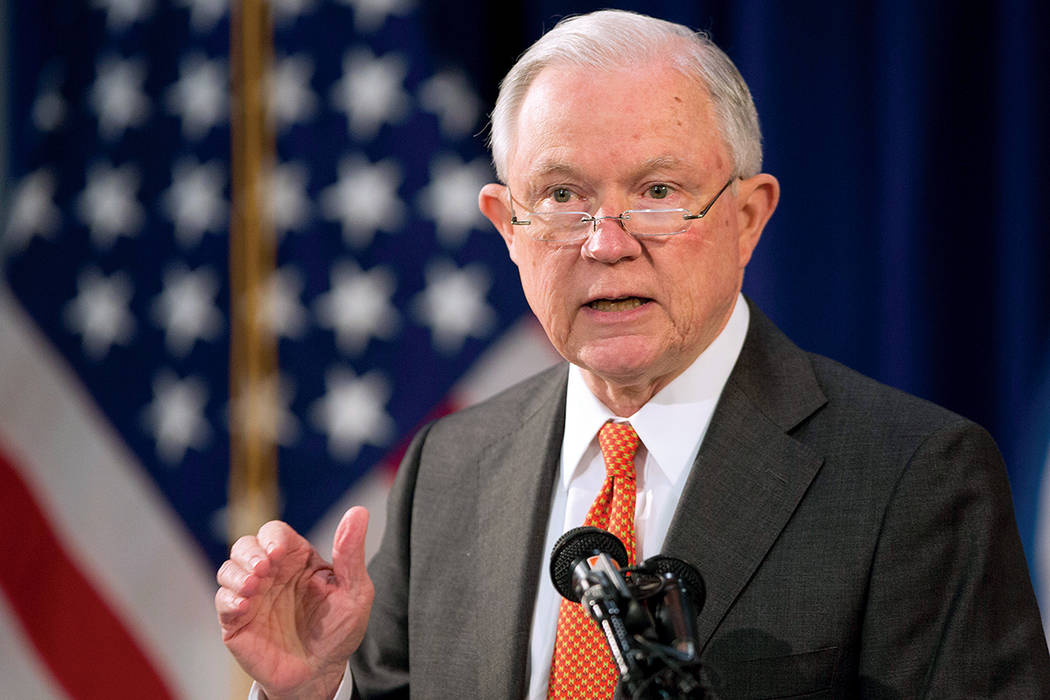Sessions’ marijuana memo gets it right
If you think, Attorney General Jeff Sessions’ is the one to blame for federal marijuana policy, you must be smoking something.
Marijuana has been illegal in the United States since Congress banned it in 1937. Over the course of Barack Obama’s presidency, however, his attorney general’s office issued a series of directives on the subject. Those memos told federal prosecutors to ignore federal law and avoid prosecuting most marijuana crimes in states that had legalized pot and had a well-regulated market.
States took that as a green light to legalize marijuana. In eight states, including Nevada, it is now legal under state law to use recreational marijuana. In 22 additional states, medical marijuana is legal.
Last week, Sessions rescinded the Obama’s marijuana memos. “In deciding which marijuana activities to prosecute under these laws with the Department’s finite resources, prosecutors should follow the well-established principles that govern all federal prosecutions,” wrote Sessions.
Since Sessions had often supported states’ rights, many saw a contradiction. A Chicago Tribune piece said he’s “a hypocrite on states’ rights.” A Huffington Post article blasted Sessions for being “all over the place on states’ rights.”
There have been many violations of states’ rights over the years. Sessions’ pot memo isn’t one of them.
It starts with the separation of powers, which the Constitution created by dividing the federal government into three branches. As the legislative branch, Congress passes the laws. The executive branch enforces them. The judicial branch arbitrates disputes and has gained significant power by asserting that it’s the final word on constitutionality.
The president has a veto. The Constitution doesn’t give him a secondary veto by allowing him to enforce only the laws he agrees with. If you think that’s how it should be for marijuana, are you willing to be intellectually consistent? Then you must also think Sessions has the power to tell federal prosecutors not to go after those who violate federal gun laws, if a state has a more lax standard. Should he even defer to states on the minimum wage, environmental regulations and the legality of abortion?
The 10th Amendment implies state authority over issues such as marijuana, but the U.S. Supreme Court has ignored it for decades. In its 2005 Gonzales v. Raich ruling, the court held that the federal government may regulate marijuana.
Some background. In 1996, California passed a medical marijuana bill. The Drug Enforcement Administration, however, kept administering federal drug laws and seized marijuana grown by a patient for her personal use. Two California residents sued, arguing the feds didn’t have constitutional authority to regulate their drug use.
By a 6-3 vote, the court disagreed. It said the federal government could regulate marijuana under the Commerce Clause. Those six justices included the court’s four liberal members, with an opinion authored by liberal Justice John Paul Stevens.
Justice Clarence Thomas, whom many on the left have spent decades mocking, including one liberal writer smearing him as a “house negro,” wrote a striking dissent. “If Congress can regulate this under the Commerce Clause, then it can regulate virtually anything — and the Federal Government is no longer one of limited and enumerated powers.”
Whether marijuana should be legal ought to be up to the individual states. That it isn’t remains the fault of Congress and the Supreme Court, not an attorney general instructing his prosecutors to follow the law.
Listen to Victor Joecks discuss his columns each Monday at 9 a.m. with Kevin Wall on 790 Talk Now. Contact him at vjoecks@reviewjournal.com or 702-383-4698. Follow @victorjoecks on Twitter.



